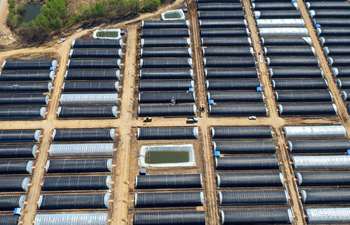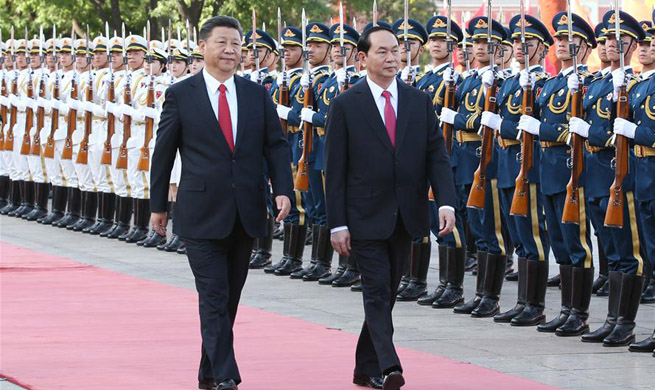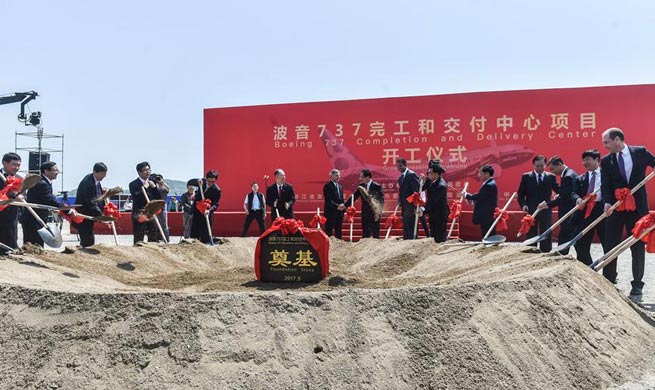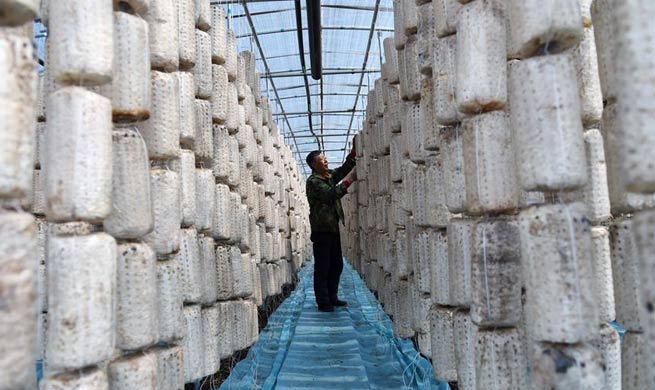LONDON, May 11 (Xinhua) -- The British inflation rate is predicted to hit 2.8 percent this year, according to the central bank, Bank of England (BOE), on Thursday.
The BOE in its quarterly inflation report raised its forecast of Consumer Price Index (CPI) inflation for 2017 from 2.4 in its last report in February, before it falls a year from now to 2.6 percent (2.8 percent in February) and 2.2 percent two years from now (2.5 percent).
The central bank also cut slightly its expectations of GDP growth this year from 2 percent to 1.9 percent. The growth expectation for 2018 was revised up one basis point to 1.7 percent, and a similar rise for 2019 put growth at 1.8 percent.
"With wage growth moderating and inflation picking up, both household spending and GDP growth have slowed markedly. Quarterly growth is forecast to stabilize around its current rate," said bank governor Mark Carney at a press conference in the BOE headquarters.
The sterling has depreciated 16 percent since its November 2015 peak, driven down principally by a sharp fall in the immediate wake of the Brexit referendum vote on June 23 last year. Although it has recovered 2.5 percent since the February BOE inflation report, the bank said that the depreciation, the Sterling Effect, had fed through to the economy and would continue to do so.
GDP growth for the first quarter had slowed to 0.3 percent according to Office of National Statistics (ONS) figures, although the BOE expected this to be revised up to 0.4 percent. It is, however, still a fall from the 0.7 percent growth of last year's final quarter.
BANK RATE AT RECORD LOW
"The slowdown appears to be concentrated in consumer-facing sectors, partly reflecting the impact of sterling's past depreciation on household income and spending," the BOE's bank rate-setting Monetary Policy Committee (MPC) noted in minutes of its May 10 meeting published alongside the inflation report.
The MPC voted to hold the bank rate at the record low of 0.25 percent by a 7 to 1 majority, and maintained its stance that monetary policy moves could be up or down.
"Monetary policy can respond in either direction to changes to the economic outlook as they unfold," the MPC noted.
Governor Carney said: "At its May meeting the MPC decided that the current stance of monetary policy remained appropriate, the actual and prospective overshoot of inflation relative to target is entirely due to the effects of sterling's depreciation."
The depreciation in the exchange rate, together with a further pickup in global demand growth is likely to support British exports and weigh on import levels, the BOE noted in the Inflation Report, and this would growth.
As slack is taken up in the economy, this would mean that there would be upward pressures on inflation towards the end of the two-year forecast period, but this would be driven by domestic pressures rather than by the Sterling Effect, which should have passed through by then.
BOE expected global economic growth to remain positive and broadly-based with signs of more robust global demand reflected in global asset prices, with equity prices rising further, creating a favorable external environment.

















